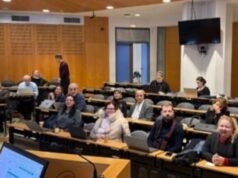 Facebook CEO Mark Zuckerberg has just announced the formation of Internet.org, a group with the specific goal of helping make the internet available to the entire world. It’s a partnership with a number of prominent technology companies — Facebook, Ericsson, Nokia, Qualcomm, and Samsung are among the founding members — that will join forces for a number of initiatives they hope will bring connectivity to the two-thirds of the globe that currently don’t have an easy way to get online.
Facebook CEO Mark Zuckerberg has just announced the formation of Internet.org, a group with the specific goal of helping make the internet available to the entire world. It’s a partnership with a number of prominent technology companies — Facebook, Ericsson, Nokia, Qualcomm, and Samsung are among the founding members — that will join forces for a number of initiatives they hope will bring connectivity to the two-thirds of the globe that currently don’t have an easy way to get online.
According to the press release announcing the initiative, Internet.org is taking aim at three specific challenges. Affordability, for which the founders will be developing cheaper means of access, including smartphones; data efficiency, in which they’ll focus on compression and other techniques that will allow services to use less bandwidth; and access itself. For the latter, Internet.org’s members will focus on developing business models that will incentivize companies of all types to provide cheaper, more plentiful internet access in the targeted regions.
Developing markets have been an area of intense focus in recent years. As internet services and even device adoption have neared the point of saturation in some countries, the best option for expansion is in regions of the world where social, economic, or other factors have served as roadblocks. Initiatives like Mozilla’s Firefox OS and Google’s Project Loon have tried to address certain facets of the problem, but a true holistic solution requires a much broader effort — a task perfectly suited for a coalition of companies of this size and caliber.
In connection with the launch, Zuckerberg has posted a mission statement laying out some early goals and approaches Internet.org is looking at, while framing its ambitions as an issue of human rights rather than business concerns. “I’m focused on this because I believe it is one of the greatest challenges of our generation,” Zuckerberg writes. “The
unfair economic reality is that those already on Facebook have way more money than the rest of the world combined, so it may not actually be profitable for us to serve the next few billion people for a very long time, if ever. But we believe everyone deserves to be connected.”
Source: http://www.theverge.com











